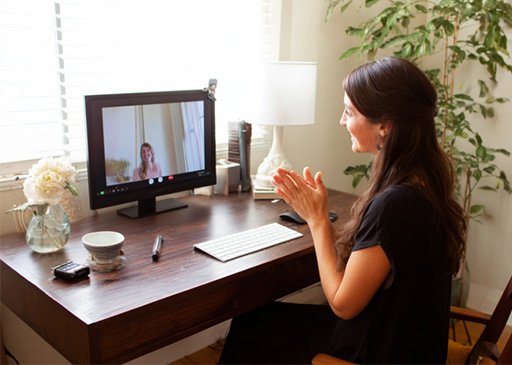How Reiki Training Can Boost Your Wellness Career

Key Techniques Taught
When you enroll in Reiki training, you learn how to work with energy through a set of straightforward methods. One of the first skills is how to use your hands either on or near the body. The focus is on intention, being present, and allowing energy to flow in a gentle, supportive way. Courses guide you in self-practice as well as working with others.
Many Reiki practitioners also use the non-invasive BioScan system to get a snapshot of a client’s overall well-being before or during sessions, tailoring their approach based on what the scan reveals. There is an emphasis on centering your mind and paying attention to what you notice, whether sensations, thoughts, or subtle shifts. Training also introduces the concept of attunements, which are a special part of Reiki that helps open up your connection to the energy. These are usually performed by a Reiki teacher and mark important steps in your progress.
Levels of Reiki Training and Their Significance
Reiki education often unfolds in levels, and each level builds on what you learned before. The first level is about understanding energy and practicing on yourself. The second level tends to add methods such as working with energy at a distance and using simple symbols to guide intent. The third level, sometimes called the master level, focuses on learning how to help others learn Reiki, if you choose. Every level has its own lessons and deeper experiences with the energy. Taking the time to move through these stages allows you to develop comfort and skill, so when you finish a level, you feel ready for the next challenge.
Reiki Training as a Catalyst for Career Advancement
In a crowded wellness field, building trust with clients can be a step-by-step process. Reiki training gives you something real to share with people right away—a recognized method and a standardized path that shows your commitment to professional growth. When clients see you have pursued proper training, it can shift their perception and make them more comfortable booking a session. Even those who have never tried energy practices may begin to view your skills as more grounded and trustworthy. Knowing you have taken the time to undergo certified training signals that you take their care seriously, which goes a long way in a relationship built on wellness support. If you are looking to offer a practice that is both reputable and respected alongside other gentle modalities, such as therapeutic touch, formal Reiki training becomes even more important.
Expanding Therapeutic Offerings in Wellness Practices
Adding Reiki training to your background allows you to bring new experiences to your clients. Whether you are already working in massage, yoga, counseling, or another wellness path, adding an energy-based skillset lets you support people in different ways. This kind of training can round out your approach, making your services more responsive to the aspects of well-being that aren’t always touched by talk or physical techniques alone. Many wellness seekers are becoming curious about energy practices, and being able to offer something fresh can set you apart. It is not just about learning a new technique—it’s about developing a unique touch that taps into the mind-body connection, giving your clients something they will not find everywhere else.
Building a Niche in Holistic Healthcare
There is a growing interest in holistic healthcare, and Reiki training can help you find your place within it. By focusing your efforts on developing skills that address the energy side of wellness, you can attract clients who want more than just surface-level support. Specializing in Reiki might mean you work with those who are looking for calm, or people searching for growth and self-discovery. Finding a distinct area in this field lets you define your philosophy and attract the kind of clients who match your vision. The more intentional you are about your training and how you describe your work, the easier it will be to carve out a spot for yourself that is both rewarding and in demand.
Integrating Reiki Training into Existing Healthcare Professions
Reiki training gives healthcare professionals an extra way to help clients, especially when the usual methods feel limited or too clinical. Many nurses, therapists, or caregivers find that adding Reiki to their daily work brings a softer, gentler touch to care routines. This practice can be as simple as offering a calming session before or after a procedure, helping patients settle their nerves, or making recovery periods feel less stressful. The gentle nature of Reiki makes it a good fit in a hospital room, physical therapy office, or even a counseling session. Over time, some find that clients report feeling calmer and less tense, which can make the whole care process smoother. It’s not supposed to replace medicine, but rather add comfort and support for both practitioner and client.
Bridging the Gap Between Science and Energy Healing
More healthcare workers are curious about what energy-based methods can do, even when scientific explanations are still developing. By learning Reiki, you set yourself up at the intersection of current research and traditional practices. This drives discussion among colleagues, invites questions from clients, and opens the door to new ways of thinking about wellness. Some practitioners notice that once they talk about Reiki and answer questions honestly, skepticism often gives way to interest. It’s about keeping an open mind—being willing to work with methods that don’t always follow textbook rules, but still seem to help. This approach helps break down barriers and brings together science and holistic care in daily practice.

Personal Growth Through Reiki Training
Taking Reiki training often means more than learning new techniques for your practice. It can shift the way you view daily life. The process is about more than just gaining a certificate—it’s a path that asks you to look inward, notice your reactions, and meet challenges with patience. Reiki training encourages this by requiring regular practice and self-reflection, both during and after classes. The deeper you get into the training, the more likely you are to notice real changes—not just in professional settings, but at home and in relationships, too.
Fostering Emotional Balance and Resilience
Through the meditative and mindful parts of Reiki, you may find yourself less rattled by stressful days. These practices give you a chance to slow down and reset your mind. As you work with the flow of energy, you get a clearer sense of how your emotions rise and fall. Over time, this tends to make it easier to handle deadlines, changes in plans, or difficult conversations. It’s not magic, but sticking with Reiki techniques does seem to lead people to respond with a bit more calm and bounce back a little faster after tough days.
Deepening Self-Awareness and Intuition
One overlooked aspect of Reiki training is how it shines a light on your own habits and instincts. The regular moments of quiet focus can help you pick up on what you’re really feeling, or even recognize patterns you fall into when under pressure. With time, you may notice your intuition getting sharper. Making choices in both work and life can come with a bit more ease, since you’re more in tune with what feels right or off for you.
Developing Empathy and Compassion
Working with Reiki invites you to pay closer attention to not just your own state, but others’ as well. Guided practices focus on being present and mindful during every session, which naturally leads to less judgment and more understanding for the people around you. Practitioners often mention that they start to pick up on others’ struggles more quickly and find themselves more patient with clients, coworkers, and even family members. This shift doesn’t happen overnight, but sustained training and real connection in Reiki can change the way you interact with people long after the class has ended.
Therapeutic Applications and Benefits of Reiki Training
When you begin practicing Reiki, you’ll notice how the process gently guides your mind into a calmer state. Many people say that just lying down for a session leaves them feeling lighter and more at peace. The hands-on techniques don’t just sit on the surface—they invite your body to slow down, letting the stress melt away. It’s not just about the moment, either. Regular Reiki sessions can help shift how you handle daily pressures. You might find yourself less reactive, more clear-headed, and capable of bouncing back from tough days. Deep relaxation isn’t something you force. In Reiki, stillness and calm unfold naturally, helping both mind and body regroup after a long week.
Supporting Physical and Emotional Healing
Supporting your well-being with Reiki means tuning into both what’s happening in the body and what you’re feeling inside. Practitioners use gentle hand placements, sometimes without even touching, to create a space where your body can settle. Many notice subtle changes—maybe an old ache feels less sharp, or emotions don’t feel as overwhelming as they once did. Reiki has a way of fostering comfort and release, giving you a break from tension and worry. The practice encourages your system to reach its own balance, so you may start noticing steady improvements in how you cope—both physically and emotionally. It’s not a quick fix, but the steady, quiet presence during Reiki sessions adds up, helping you feel steadier over time.
Improving Energy Flow and Well-Being
One of the main ideas behind Reiki is that energy flows through your system, and when that flow is easy, you feel better overall. In sessions, a practitioner pays attention to areas that feel blocked or tense, aiming to smooth them out. Some people walk away from sessions feeling more awake, alert, or simply lighter, as if a load was lifted. Energy changes won’t always be dramatic, but over time, people often say they feel more comfortable in their own skin. That’s the long-term gift of Reiki: an experience of steady well-being that you notice in small but meaningful ways, whether at work, home, or anywhere life takes you.
Essential Skills and Ethics for Reiki Practitioners
When you move into Reiki practice, your technique becomes part of your professional identity. It’s more than simply learning where to place your hands. You become familiar with the flow of energy and how to calmly guide it, using time-tested methods taught through structured courses. You take part in ongoing knowledge sessions and skill refreshers so that your approach feels both grounded and secure. Practicing these movements day after day, you build up muscle memory—making it easier to focus on your client’s comfort and peace. Safety is always at the forefront. You’re trained to notice how clients react, knowing when to move your hands or adjust your approach. That kind of awareness only comes through experience and constant self-checking. The goal is a gentle, relaxed space where everyone, including you, feels steady the entire time.
Understanding Professional Boundaries and Client Care
Maintaining clear boundaries is not just a good habit; it’s a vital element in building trust with those who come to you. You make it a point to talk openly about what Reiki involves before each session. This means setting clear expectations, keeping all conversations private, and always getting permission before starting. Clients should feel free to ask questions at any point, and nothing that happens during a session ever becomes gossip outside your workroom. You learn to observe your own responses as well, so everything stays focused on the client’s needs. This careful balance—open communication, safety, privacy—makes sessions run smoothly and strengthens your role as a trusted helper.
Upholding Ethical Standards in Practice
Ethics are the foundation of long-term success in the wellness field. You keep up with a core set of standards designed to protect both you and those who seek your skills. No session should make promises about what Reiki can do. Your role is to offer support, not guarantees. You never use sensitive information to promote yourself, and you respect every background, belief, and personal story that enters your space. Being honest about what you can and cannot offer keeps the process clear. If you sense that someone would benefit from a different kind of help, you guide them in that direction. By acting with honesty and care, you build a reputation that makes new and returning clients feel at ease. Over time, the respect you show for these standards is what shapes your practice and helps it grow.
Expanding Career Opportunities with Reiki Certification
Earning your Reiki certification can open different paths in the wellness field, especially if you want to reach new clients or bring in fresh skills. The process is not only about learning techniques but also about understanding how to fit Reiki into everyday work so it feels real and approachable. You’re not just checking off a box for personal growth; you’re building a foundation for a range of career options that might have felt out of reach before. Many people who add Reiki credentials to their résumés notice how it makes their work stand out and gives them more choices than before.
Launching Your Own Reiki Practice
Starting your own Reiki practice comes with both freedom and responsibility. You set the pace, decide how to structure your sessions, and can adapt your services to fit your lifestyle. Some choose to see clients one-on-one, while others might focus on small group sessions or even virtual appointments. The structure depends on your goals and your schedule. Flexibility is one of the biggest draws for many practitioners. There’s also space for creativity—you can tailor your approach, develop policies that suit your values, and grow your client base at a rate that makes sense for you. For example, wellness professionals such as Behavioral Health Technicians have found new avenues for support work by incorporating energy-based approaches.
Collaborating with Wellness Centers and Hospitals
Connecting with established wellness centers or hospitals can be a big shift if you’re used to independent work. In these environments, Reiki fits in with a mix of other wellness services. Some places look for certified practitioners to provide relaxation or stress management sessions. When you’re part of a larger team, it’s important to follow the protocols of each organization, but you also have the chance to bring new value to the table. These collaborations can introduce you to people with different needs and backgrounds, which adds variety and depth to your daily work. It’s also a way to build relationships with other wellness professionals and learn from their styles.

Adapting Services for Corporate and Group Wellness
There’s a growing interest in making workplace wellness more than just an afterthought. Companies see the value in reducing employee stress and improving focus. Reiki sessions in group settings, at corporate retreats, or as part of ongoing staff wellness programs can bring something unique to that space. You might notice that corporate clients respond well to guided relaxation practices or group-based energy sessions—it makes for a calm break in the daily routine. Offering Reiki in this way means thinking about how to communicate its benefits in plain language, so everyone feels comfortable and understands what to expect. This area can give you a steady flow of work and chances to educate others about the ways Reiki can fit into modern professional environments.
Frequently Asked Questions
What is Reiki and how does it work?
Reiki is a gentle healing practice that began in Japan. It involves using your hands to guide energy through the body, helping people relax and feel better. Reiki works by balancing the body’s energy, which can support both physical and emotional healing.
How can Reiki training help my wellness career?
Learning Reiki adds a valuable skill to your practice. It makes you more trusted by clients and allows you to offer a wider range of services. Many people look for Reiki because it’s a non-invasive way to help with stress and healing.
Do I need a medical background to learn Reiki?
No, you do not need a medical background to start Reiki training. Anyone can learn Reiki, but as a healthcare professional, you may find it easy to use Reiki alongside your current skills.
What are the different levels of Reiki training?
Reiki training usually has three main levels. Level 1 teaches you self-healing and basic hand positions. Level 2 shows you how to help others and do distance healing. The Master level lets you teach Reiki to others and lead groups.
What are the main benefits of becoming a Reiki practitioner?
As a Reiki practitioner, you can help people relax, reduce stress, and feel better overall. You may also notice personal growth, like better emotional balance and stronger intuition. Reiki can open up new job opportunities and help you build a more caring practice.
Start Your Reiki Training Today
It’s not about learning a technique—it’s about finding a different way to help people feel better, both physically and emotionally. Many who start this journey find that it changes not only their work but their own lives, too. You might notice more patience, a calmer mind, and a stronger connection with your clients. Plus, with more people looking for holistic care, Reiki can help you stand out in a crowded field. Whether you want to work one-on-one, lead group sessions, or even offer remote support, Reiki gives you options. At the end of the day, it’s about supporting others and yourself in a way that feels real and meaningful. If you’re ready for a change, Reiki training would be the next step in your wellness career.



